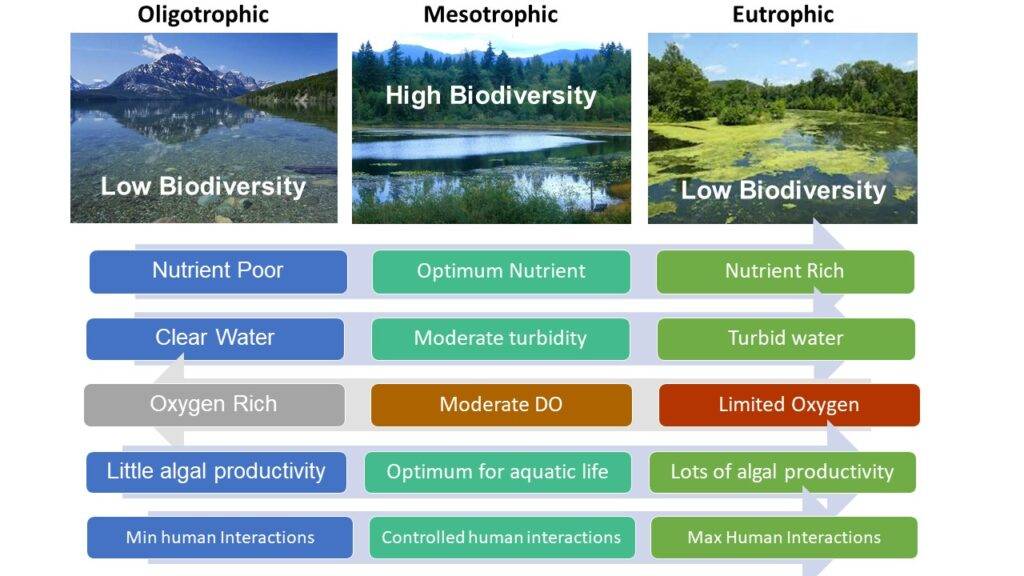
Every component of our planet has some specific function and role to play. For example, the complexity and diversity of plants will not be there if flies do not participate in cross-pollination. Therefore, each component is important for ecological functioning and can not be replaced by any others. Human beings are one such component of the ecological system with limited specific roles. To know the purpose of human beings on the planet, it is important to know the ecological function of human beings and associated responsibilities.
1. Tends to attend to ultimate complexity
The universe tends to attend to ultimate complexity through a steady increase in entropy with keeping the system balanced. The ultimate goal of human beings on Earth is the same as the universal law to attend to ultimate complexity. Each individual should understand their specific role to attend the same. Our steps and action should not be against the natural law.
As an individual, we must participate in complexity through specific actions. For instance, our genetic makeup is highly complex compared to all others. This is possible through hybridizing processes that take millions of years to achieve. At the same time, our responsibility is to facilitate and simplify the complex system so that others follow the path of complexity.
2. Very high comprehensive ability
Many people still think that our planet is human-centric and its resources are to provide services to humans. But this is not the reality, human beings are a tiny part of a living organism like all other organisms. At the same time, we are different than all others. For example, our intelligence and comprehensive ability are utmost on top of the line who can transcend body-mind, study, and comprehend the system of creation and its significance. So humans can have an understanding of the environmental limitations and balance to sustain us and all other creatures.
3. Attempt to understand the limitations of planet earth
Human beings can protect organisms on the planet from natural calamities by understanding their nature and cause. In addition, humans have the potential to understand the limitations of planet Earth and act responsibly. However, most of us believe in only visible phenomena of the human life cycle including birth, growth, reproduction, sickness & death. However, life is beyond our understanding and visibility.
For instance, we attempt to understand human life through the genome study and we found approx 1012 cells in the human body with approx 24,000 genes transferred from parents and available for functions. However, our body contains 10-100 times more microbial cells received from the environment than our cells and has >4,00,000 genes. That’s how complexity increases as we proceed in life. So it will be never easy to understand the complexity as it will be progressive and dynamic. If we understand today, tomorrow will be even more complex.
4. Enrichment of water bodies
Human interaction with water is crucial for the growth and health of many aquatic organisms. Since human activities including agriculture, domestic, and industrial may enrich nutrients in the water bodies. These nutrients are important for the aquatic organism in addition to the nutrient added by the natural processes.
Often lakes are under oligotrophic conditions and not suitable for high biodiversity due to a lack of enough human interactions. Human activities may enhance the transport and fate of nutrients which facilitate the conversion of oligotrophic to mesotrophic conditions. Mesotrophic water bodies have enough nutrients and dissolved oxygen to support high biodiversity. However, excess addition of nutrients leads to eutrophication. As per the UNEP, 30 to 40% of total water bodies are eutrophicated and have limited DO content. Therefore, optimum interactions with water bodies can be considered as an important role of human beings on Earth.

5. Equalibirization in the circular chain process
All living organisms including human beings are nature’s selected for their endless circular chain process with its equilibrium. The primary function of every individual is to consume other’s output meanwhile discharging its own out as input to others to keep the process in equilibrium such as material recycling through the food chain. Every individual depends on other organisms for food and survival and to maintain the circular chain. As human beings, we have the capabilities to understand the recycling process and maintain it through active participation.
In addition, humans have played a role in managing and manipulating the biodiversity of the planet. Through domestication and selective breeding, we have shaped numerous plant and animal species for our benefit. However, this has sometimes led to the loss of genetic diversity and the disruption of natural ecosystems
6. Social bonding even after ceasing reproduction
Most animals can reproduce until they die except humans who can live happily beyond ceasing reproductive capabilities due to social bonding. Reproductive capabilities are provided to each organism to attend complexity of the plant. Now the question is why do we survive on the plants after the purpose gets fulfilled? Human beings have a strong social bonding and capabilities to manage ecological problems and sustain for the future. That might be one of the reasons behind survivability after ceasing reproductive capabilities. Therefore, it is important to participate in social activities in addition to the birth-reprduce-die-rebirth cycle.
7. Cognitive and Technological Advancement
Humans possess advanced cognitive abilities, including abstract thinking, problem-solving, and communication. These abilities have allowed us to develop sophisticated technologies, significantly altering our way of life and the planet’s landscape. On the other hand, this has created several environmental issues and challenges. Therefore, the proper use of cognitive abilities for the betterment of society as a whole is one of the important roles of human beings on this planet.
8. Environmental Impact
Human activities have caused widespread changes to the Earth’s ecosystems through deforestation, urbanization, pollution, and climate change. This is because humans have become masters of resource utilization and have been able to harness energy from various sources to meet their needs and desires. This has allowed us to build complex civilizations, but it also raises concerns about resource depletion and sustainability. The scale of human impact on the environment is so significant that scientists have coined the term “Anthropocene” to describe this era, where human influence is the dominant factor shaping the Earth’s geology and ecosystems. Therefore, minimizing the Anthropocene impact on naturalness is one of the top priorities of humans.
9. Scientific Understanding and Stewardship
As a highly intelligent species, humans have a unique capacity for scientific inquiry and understanding. We have the ability to study and learn about the world around us, which can contribute to better stewardship of the planet and more sustainable practices. Therefore, understanding the self’s capabilities and abilities is one of the important roles of human beings.
10. Ethical Responsibility
With great power comes great responsibility. As the dominant species on Earth, humans have a moral and ethical responsibility to ensure the well-being of other life forms and the planet as a whole. This includes protecting biodiversity, mitigating climate change, and preserving natural habitats.
Conclusion
We think everything on the planet is to serve humanity. But it’s not, we are just a small part of it with limited specific ecological functions. Humans have the power and capabilities to understand life beyond the physical world and can play a vital role as discussed above. Moreover, human beings on this planet have a slightly different purpose in addition to common ecological roles. However, it’s important to note that the planet can function and flourish without humans.

